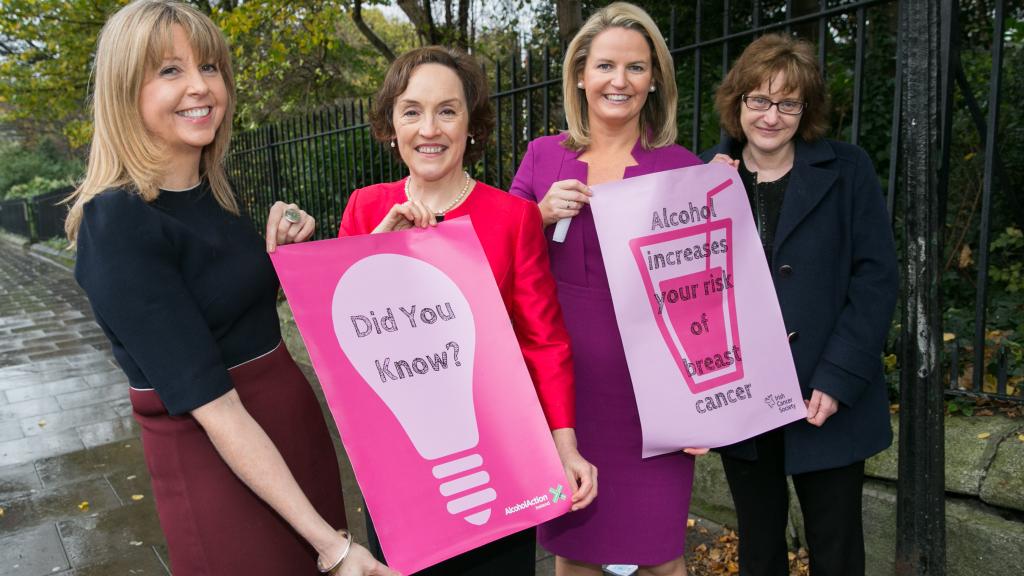
Action needed to reduce death toll from alcohol-related cancers
The challenge of reducing the number of lives claimed by alcohol-related cancers was discussed at the Cross Party Oireachtas Group on Alcohol Harm in Leinster House this (Wednesday) morning.
900 Irish people are diagnosed with alcohol-related cancers and around 500 people die from these disease every year, according to the National Cancer Control Programme (NCCP). Alcohol is classified as a group 1 carcinogen by the International Agency for Research on Cancer (IARC) and can cause cancer of the mouth, pharynx, larynx, oesophagus, liver, pancreas, bowel and breast.
Members of the Oireachtas were briefed on the issue by Dr Marie Laffoy, community oncology adviser with the NCCP; Ms Kathleen O’Meara, Head of Advocacy and Communications with the Irish Cancer Society, and Suzanne Costello, Chief Executive of Alcohol Action Ireland. The Irish Cancer Society recently published a guide on Alcohol, Cancer and Your Health.
“Alcohol consumption is a major cause of cancer, along with other important risk factors such as smoking, obesity and physical inactivity, and like those other risk factors it’s also one of the most preventable causes of cancer,” said Senator Lorraine Higgins, Chairperson of the Cross Party Oireachtas Group on Alcohol Harm.
“Drinking alcohol is a lifestyle choice that many of us in Ireland make, but a large number of people are not aware that the more alcohol you drink, the more you increase your risk of developing a number of cancers, including breast cancer,” said Senator Higgins.
“The Public Health (Alcohol) Bill offers the Government a great opportunity to begin to tackle the key issues driving our harmful drinking patterns, particularly the widespread availability of very cheap alcohol in the off-trade, where you can buy bottles of water for less than bottles of beer.”
Ms Kathleen O’Meara said: “There is no safe level of alcohol consumption as far cancer is concerned and this is why the Irish Cancer Society is fully supportive of legislation that will include making warning labels on all cans and bottles of alcohol mandatory. We want these to state that alcohol causes fatal cancer.”
“We believe the Public Health (Alcohol) Bill will have cross-party support because of the strong link between alcohol and cancer. We are all working towards a future without cancer but we can’t reach this goal without reducing the level of alcohol consumption in this country,” said Ms. O’Meara.
Dr Marie Laffoy said: “Over 100 research studies have examined the association between alcohol consumption and breast cancer. There is clear and consistent evidence of the association and the risk increases with alcohol intake.” The NCCP research showed that 12% of breast cancers and 50% of head and neck cancers in Ireland were associated with alcohol consumption.
“Drinking over Department of Health recommended limits accounts for much of the increased risk of alcohol-related cancers in Ireland. At least half of alcohol-related cancers could be avoided by dirnking within recommended levels. In relation to alcohol and breast cancer, a sensible life=long approach to consumption is needed and my advice is that ‘less is best’,” said Dr Laffoy.
Ms Suzanne Costello said: “While many people are aware of the short-term effects of drinking too much, the long-term effects on our health often slip under the radar and awareness of the cancer risks associated with alcohol are quite low in Ireland. People have a right to make informed choices when it comes to their health, but we know that many people are currently uninformed when it comes to the cancer risks associated with alcohol.”
